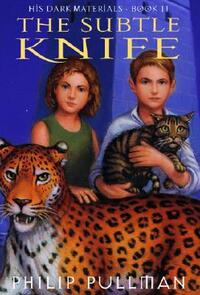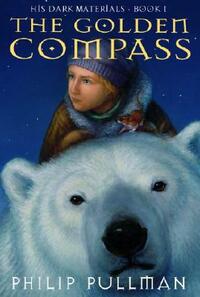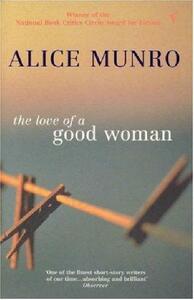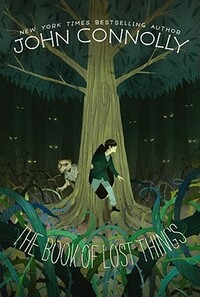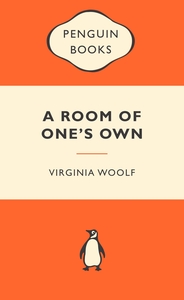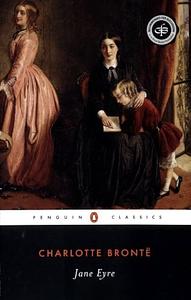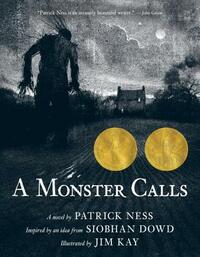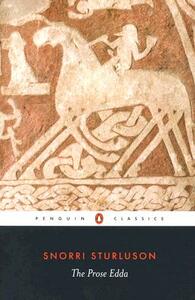Take a photo of a barcode or cover
theinquisitxor's Reviews (804)
“She had asked: What is he? A friend or an enemy?
The alethiometer answered: He is a murderer.
Looking through the reviews for this book, I don't really get why it typically gets a lower rating than The Golden Compass. I think The Subtle Knife is definitely on par with the first book. Yes, Lyra isn't the main point of view throughout the book, but Will is just as much as a lovable and amazing character as Lyra is. I also like the fact that we get multiple points of view, and I think that this is needed to tell the story and for the reader to understand what is happening. Another thought is that this series needs to be read more as a whole, not necessarily as three separate books. Structurally, The Subtle Knife isn't very strong, but when you read the books as one whole thing, it's much better.
Besides that, lets get into what I love about this book. I honestly didn't remember much at all about what happens in the story, so reading it again was almost like reading it for the first time. I really like Will. I think I relate to him a bit more than Lyra. Both the children are incredibly tangible and real. I also love the new elements introduced in the story. The Subtle Knife is one of the coolest inventions/tools. hands down. The ability to cut through anything, including the fabric of the universe to other worlds?! Amazing.
Portal fantasies are one of my favorite genres and it's in this book that really explores other worlds, how to access those worlds and the consequences to slipping into the multiverse. The science might be a little bit old, because the series is around 20 years old itself. But it still remains a great story. Here, we finally get to know the main conflict of the story. The Lord Asriel is trying to destroy the Authority, or God. The fact that this was even published sometimes blows my mind. I'm a bit too young to know of the controversies surrounding this series, but the anti-christian themes are huge. It's definitely deconstructing something that has such a influence on society.
This is also a re-telling of Paradise Lost, which I read last Spring, so I'm interested in comparing the two. I originally had this at 5 stars, but I'm going to bump it down to 4. I still really like this, but I wasn't as emotionally attached to the story. I usually base my ratings on my emotions after finishing the story, and less of the structure and technicalities. Still really good, and I know the third is really going to wreck me. I have about 20 days until the first episode of the hbo/bbc adaptation is released and to finish my re-read of this series!
The alethiometer answered: He is a murderer.
Looking through the reviews for this book, I don't really get why it typically gets a lower rating than The Golden Compass. I think The Subtle Knife is definitely on par with the first book. Yes, Lyra isn't the main point of view throughout the book, but Will is just as much as a lovable and amazing character as Lyra is. I also like the fact that we get multiple points of view, and I think that this is needed to tell the story and for the reader to understand what is happening. Another thought is that this series needs to be read more as a whole, not necessarily as three separate books. Structurally, The Subtle Knife isn't very strong, but when you read the books as one whole thing, it's much better.
Besides that, lets get into what I love about this book. I honestly didn't remember much at all about what happens in the story, so reading it again was almost like reading it for the first time. I really like Will. I think I relate to him a bit more than Lyra. Both the children are incredibly tangible and real. I also love the new elements introduced in the story. The Subtle Knife is one of the coolest inventions/tools. hands down. The ability to cut through anything, including the fabric of the universe to other worlds?! Amazing.
Portal fantasies are one of my favorite genres and it's in this book that really explores other worlds, how to access those worlds and the consequences to slipping into the multiverse. The science might be a little bit old, because the series is around 20 years old itself. But it still remains a great story. Here, we finally get to know the main conflict of the story. The Lord Asriel is trying to destroy the Authority, or God. The fact that this was even published sometimes blows my mind. I'm a bit too young to know of the controversies surrounding this series, but the anti-christian themes are huge. It's definitely deconstructing something that has such a influence on society.
This is also a re-telling of Paradise Lost, which I read last Spring, so I'm interested in comparing the two. I originally had this at 5 stars, but I'm going to bump it down to 4. I still really like this, but I wasn't as emotionally attached to the story. I usually base my ratings on my emotions after finishing the story, and less of the structure and technicalities. Still really good, and I know the third is really going to wreck me. I have about 20 days until the first episode of the hbo/bbc adaptation is released and to finish my re-read of this series!
"...but some glaze remained, a haunted rigidity- as if people were content to become memories of themselves, final photographs."
This was the last Munro story that I read for my Women Writers class. It was one that I generally thought was just okay when I finished reading it, but discussing it in class made it much better. Alice Munro has a way of reminding you that you will never truly know anyone. No matter if they're your parents, siblings, spouse or children, you will never truly know them. It's a little depressing to think about, but Munro weaves this thought into her stories so well you almost don't even realize it.
This is a story about a married couple, Grant and Fiona. Fiona gets dementia and is sent to live at a nursing home. While she is there, she strikes up a relationship with another man. She seemingly doesn't remember her husband during his visits, and instead has found a new life. The story is told from Grant's perspective as he tries to navigate this new relationship and lifestyle. It's a bit of a 'taste of your own medicine' scenario, as Grant had been cheating on Fiona with many different women for quite a while. Even though he obviously deeply loves her, he still would routinely have other affairs.
The ending is a bit bittersweet, and leaves a many unanswered questions in the typical Munro style. Questions we're then left to ponder and try to figure out. I definitely liked this story much more once I had a class discussion, and I'm glad I have this large collection of her stories so I can hopefully read more in the future.
This was the last Munro story that I read for my Women Writers class. It was one that I generally thought was just okay when I finished reading it, but discussing it in class made it much better. Alice Munro has a way of reminding you that you will never truly know anyone. No matter if they're your parents, siblings, spouse or children, you will never truly know them. It's a little depressing to think about, but Munro weaves this thought into her stories so well you almost don't even realize it.
This is a story about a married couple, Grant and Fiona. Fiona gets dementia and is sent to live at a nursing home. While she is there, she strikes up a relationship with another man. She seemingly doesn't remember her husband during his visits, and instead has found a new life. The story is told from Grant's perspective as he tries to navigate this new relationship and lifestyle. It's a bit of a 'taste of your own medicine' scenario, as Grant had been cheating on Fiona with many different women for quite a while. Even though he obviously deeply loves her, he still would routinely have other affairs.
The ending is a bit bittersweet, and leaves a many unanswered questions in the typical Munro style. Questions we're then left to ponder and try to figure out. I definitely liked this story much more once I had a class discussion, and I'm glad I have this large collection of her stories so I can hopefully read more in the future.
“We feel cold, but we don't mind it, because we will not come to harm. And if we wrapped up against the cold, we wouldn't feel other things, like the bright tingle of the stars, or the music of the aurora, or best of all the silky feeling of moonlight on our skin. It's worth being cold for that.”
I'm re-reading His Dark Materials in preparation for the HBO show release in November, and well as The Book of Dust #2, The Secret Commonwealth (which was actually released today! but I'm not going to read it until I have completed the reread). The last time I read this series was probably around 4 or 5 years ago, so a re-read of one of my favorites was overdue.
I didn't read this series as a child, but rather as a teenager. Now as an adult, I still hold true to the rating I gave the book back when I made this account. Lyra is one of my all time favorite characters. I love her as a half- wild girl running around the streets and roofs of Oxford, and I love her as the lying, scheming girl she is at the end of this book, who fights for what's right and braves going into an entirely new world. I also obviously adore Pan, and daemons in the story are so unique and part of what really makes this series stand out.
The setting also makes the book. I love university settings and Oxford is about as good as it gets. I also love journeys, as well as icy, vast, northern worlds. The armored bears, witches and secret government compounds probably make this one of the best combinations I have come across in books. Portal fantasy stories are also one of my favorite tropes, so this honestly, Philip Pullman couldn't have done better. (also, a woman and the church as the enemy? a very bold move by Pullman in 1995.) I have The Subtle Knife sitting here waiting, so I'll probably start it soon.
I'm re-reading His Dark Materials in preparation for the HBO show release in November, and well as The Book of Dust #2, The Secret Commonwealth (which was actually released today! but I'm not going to read it until I have completed the reread). The last time I read this series was probably around 4 or 5 years ago, so a re-read of one of my favorites was overdue.
I didn't read this series as a child, but rather as a teenager. Now as an adult, I still hold true to the rating I gave the book back when I made this account. Lyra is one of my all time favorite characters. I love her as a half- wild girl running around the streets and roofs of Oxford, and I love her as the lying, scheming girl she is at the end of this book, who fights for what's right and braves going into an entirely new world. I also obviously adore Pan, and daemons in the story are so unique and part of what really makes this series stand out.
The setting also makes the book. I love university settings and Oxford is about as good as it gets. I also love journeys, as well as icy, vast, northern worlds. The armored bears, witches and secret government compounds probably make this one of the best combinations I have come across in books. Portal fantasy stories are also one of my favorite tropes, so this honestly, Philip Pullman couldn't have done better. (also, a woman and the church as the enemy? a very bold move by Pullman in 1995.) I have The Subtle Knife sitting here waiting, so I'll probably start it soon.
Through her silence, her collaboration in a silence, what benefits could bloom. For others, and for herself. This is what most people knew. A simple thing that it had taken her so long to understand. This was how to keep the world habitable."
I'm going to be reading several Alice Munro stories over the next week or so for my Women Writers class, and so far my experience with her writing has been good. I'm not surprised, since Munro won the 2013 Nobel Prize in Literature. The Love of a Good Woman makes you question. It makes you question society, the events of the story, and above all, how well you think you know the characters.
This story pivots upon a murder. The story begin with three young boys who find a car submerged in a river, with a body inside. This turns out to be the town's optometrist, and his death is presumed an accident. The narrative then switches to an in-home nurse, Enid who is taking care of a dying woman, Mrs. Quinn. She learns of the truth of the optometrist and that his death was actually a murder, with his car and body dumped in the river. Enid must chose to confront the man she loves about his crime, or remain silent about it. The ending is left open for interpretation and we're only given a few hints about what actually becomes of Enid.
Enid doesn't rank up with the great heroines of the English novel, but she is very real (to an extent) and makes the easy decision. She and the other women of the story are kinda just your average women. They do what they have to do, and deal with their male counterparts the best they can. Overall, I enjoyed reading and discussing this short story, and I look forward to reading some more Alice Munro.
I'm going to be reading several Alice Munro stories over the next week or so for my Women Writers class, and so far my experience with her writing has been good. I'm not surprised, since Munro won the 2013 Nobel Prize in Literature. The Love of a Good Woman makes you question. It makes you question society, the events of the story, and above all, how well you think you know the characters.
This story pivots upon a murder. The story begin with three young boys who find a car submerged in a river, with a body inside. This turns out to be the town's optometrist, and his death is presumed an accident. The narrative then switches to an in-home nurse, Enid who is taking care of a dying woman, Mrs. Quinn. She learns of the truth of the optometrist and that his death was actually a murder, with his car and body dumped in the river. Enid must chose to confront the man she loves about his crime, or remain silent about it. The ending is left open for interpretation and we're only given a few hints about what actually becomes of Enid.
Enid doesn't rank up with the great heroines of the English novel, but she is very real (to an extent) and makes the easy decision. She and the other women of the story are kinda just your average women. They do what they have to do, and deal with their male counterparts the best they can. Overall, I enjoyed reading and discussing this short story, and I look forward to reading some more Alice Munro.
“Once upon a time – for that is how all stories should begin – there was a boy who lost his mother.”
4.5 stars/ I'm still trying to process my emotions about this book. I deeply enjoyed it, and it left me with a very melancholy yet hopeful feeling after finishing it. The story takes place in WWII England, and our main character, David has just lost his mother. David's father re-marries (too quickly in David's opinion) and soon has another child, which leaves David still very angry and mourning. David gets pulled into this fairy tale world, but soon realizes its much darker and deadlier than he ever imagined fairy tales could be. His only hope to back home is to find the King and his fabled Book Of Lost Things, but he is being hunted by a pack of wolf- like beings and something even far more sinister, The Crooked Man.
This is a dark book, like I wouldn't recommend it to someone younger than 13. It takes all our well known fairy tales and completely inverts and darkens them. There is a lot of death, killing, and body horror (graphic descriptions of body mutilation and gore). This all kinda caught me off guard, as I was expecting a middle grade fantasy, but instead I got a adult fantasy story with a child as the protagonist. Which was fine, I just went into this book not knowing much about it. The Ocean at the End of the Lane by Neil Gaiman is like this; it features a boy protag, but the story has is too dark to be considered a children's story. And The Ocean at the End of the Lane is one of my all time favorites.
The characters David meets make the book. From the Woodsman, the Communist Dwarves, the Hunter, to the Knight Roland (oh Roland, you were my favorite). John Connolly is obviously a gifted writer and even though so much happened in about 330 pages, it felt well paced. David is a character you're supposed to self-project onto (?) but he still felt incredibly real and like his own person. The ending however left me with a lump in my throat. This is a book I can see myself picking up again soon and re-reading it just to return to this dark fairy tale.
4.5 stars/ I'm still trying to process my emotions about this book. I deeply enjoyed it, and it left me with a very melancholy yet hopeful feeling after finishing it. The story takes place in WWII England, and our main character, David has just lost his mother. David's father re-marries (too quickly in David's opinion) and soon has another child, which leaves David still very angry and mourning. David gets pulled into this fairy tale world, but soon realizes its much darker and deadlier than he ever imagined fairy tales could be. His only hope to back home is to find the King and his fabled Book Of Lost Things, but he is being hunted by a pack of wolf- like beings and something even far more sinister, The Crooked Man.
This is a dark book, like I wouldn't recommend it to someone younger than 13. It takes all our well known fairy tales and completely inverts and darkens them. There is a lot of death, killing, and body horror (graphic descriptions of body mutilation and gore). This all kinda caught me off guard, as I was expecting a middle grade fantasy, but instead I got a adult fantasy story with a child as the protagonist. Which was fine, I just went into this book not knowing much about it. The Ocean at the End of the Lane by Neil Gaiman is like this; it features a boy protag, but the story has is too dark to be considered a children's story. And The Ocean at the End of the Lane is one of my all time favorites.
The characters David meets make the book. From the Woodsman, the Communist Dwarves, the Hunter, to the Knight Roland (oh Roland, you were my favorite). John Connolly is obviously a gifted writer and even though so much happened in about 330 pages, it felt well paced. David is a character you're supposed to self-project onto (?) but he still felt incredibly real and like his own person. The ending however left me with a lump in my throat. This is a book I can see myself picking up again soon and re-reading it just to return to this dark fairy tale.
"Lock up your libraries if you like; but there is no gate, no lock, not bolt that you can set upon the freedom of my mind."
This was the first Virginia Woolf that I have read, and I throughly enjoyed it. I read this for my Women Writers class this semester, and we haven't discussed it in class yet, but I'm really looking forward to it. It kinda amazes me that Woolf wrote this in 1929. One one hand this seems like such a progressive essay for the time, but then I realize that the centennial for this essay isn't actually that far away. Only 10 years.
Either way, some of what Woolf talks about is simply great. The idea that a woman needs "a room of one's own" if she is to be a woman writer is really interesting. Its something I never really thought about, that for most of history, women didn't have their 'own space' and the ability to do things in privacy. Jane Austen used to cover up whatever she was writing whenever someone walked into the room. The Bronte's were able to write because their father was going blind, so they therefore had a freedom many women never got. Here's a couple of my favorite passages from this essay:
"She pervades poetry from cover to cover; she is all but absent from history. She dominated the lives of kings and conquerors in fiction; in fact she was the slave of any boy whose parents forced a ring upon her finger. Some of the most inspired words, some of the most profound thoughts in literature fall from her lips; in real life she could hardly read, could scarcely spell, and was the property of her husband."
"...is that any woman born with a great gift in the sixteenth century would certainly gone crazed, shot herself, or ended her days in some lonely cottage outside the village, half witch, half wizard, feared and mocked at."
"Thus towards the end of the eighteenth century a change came about which, if I were rewriting history, I should describe more fully and think of greater importance than the Crusades or the Wars of the Roses. The middle class woman began to write."
"Intellectual freedom depends upon material things. Poetry depends upon intellectual freedom. And women have always been poor, not for two hundred years merely, but from the beginning of time. Women have had less intellectual freedom than the sons of Athenian slaves. Women, then, have not had a dog's chance of writing poetry. That is why I have laid so much stress on money and a room of one's own."
"Now my belief is that this poet who never wrote a word and was buried at the cross-roads still lives. She lives in you and in me, and in many other women who are not here tonight, for they are washing up dishes and putting children to bed. But she lives; fro great poets do not die; they are continuing presences; they need only the opportunity to walk among in the flesh."
This was the first Virginia Woolf that I have read, and I throughly enjoyed it. I read this for my Women Writers class this semester, and we haven't discussed it in class yet, but I'm really looking forward to it. It kinda amazes me that Woolf wrote this in 1929. One one hand this seems like such a progressive essay for the time, but then I realize that the centennial for this essay isn't actually that far away. Only 10 years.
Either way, some of what Woolf talks about is simply great. The idea that a woman needs "a room of one's own" if she is to be a woman writer is really interesting. Its something I never really thought about, that for most of history, women didn't have their 'own space' and the ability to do things in privacy. Jane Austen used to cover up whatever she was writing whenever someone walked into the room. The Bronte's were able to write because their father was going blind, so they therefore had a freedom many women never got. Here's a couple of my favorite passages from this essay:
"She pervades poetry from cover to cover; she is all but absent from history. She dominated the lives of kings and conquerors in fiction; in fact she was the slave of any boy whose parents forced a ring upon her finger. Some of the most inspired words, some of the most profound thoughts in literature fall from her lips; in real life she could hardly read, could scarcely spell, and was the property of her husband."
"...is that any woman born with a great gift in the sixteenth century would certainly gone crazed, shot herself, or ended her days in some lonely cottage outside the village, half witch, half wizard, feared and mocked at."
"Thus towards the end of the eighteenth century a change came about which, if I were rewriting history, I should describe more fully and think of greater importance than the Crusades or the Wars of the Roses. The middle class woman began to write."
"Intellectual freedom depends upon material things. Poetry depends upon intellectual freedom. And women have always been poor, not for two hundred years merely, but from the beginning of time. Women have had less intellectual freedom than the sons of Athenian slaves. Women, then, have not had a dog's chance of writing poetry. That is why I have laid so much stress on money and a room of one's own."
"Now my belief is that this poet who never wrote a word and was buried at the cross-roads still lives. She lives in you and in me, and in many other women who are not here tonight, for they are washing up dishes and putting children to bed. But she lives; fro great poets do not die; they are continuing presences; they need only the opportunity to walk among in the flesh."
“Do you think, because I am poor, obscure, plain and little, I am soulless and heartless? You think wrong! - I have as much soul as you, - and full as much heart!"
I first read Jane Eyre years ago as a young teenager, and I understood the basic plot, but I was a bit too young to really appreciate this novel for what it is. I just re-read it for the second time for my Women Writers class I'm taking this semester, and I have a much larger liking this book now. It's not an all time favorite for me, as I don't care much for the plot and Mr. Rochester, but Charlotte Bronte's writing style and skill make up for it. I have been often thinking how much more content and books we would have if the Bronte sisters lived in a time in which they could have written unencumbered of their gender and health.
About two years ago I read Wuthering Heights (which I don't care for) and The Tenant of Wildfell Hall (which is one of my favorites). I had meant to re-read Jane Eyre then, but never got around to it. However, I'm glad that I read this in a college class with a professor I like, and who has offered some great insight into the book. Jane is such an interesting and complex character more than I ever thought, and the literary criticism surrounding this novel is very interesting. Anyways, I enjoyed re-reading this quite a lot and I look forward to the rest of the semester's readings!
I first read Jane Eyre years ago as a young teenager, and I understood the basic plot, but I was a bit too young to really appreciate this novel for what it is. I just re-read it for the second time for my Women Writers class I'm taking this semester, and I have a much larger liking this book now. It's not an all time favorite for me, as I don't care much for the plot and Mr. Rochester, but Charlotte Bronte's writing style and skill make up for it. I have been often thinking how much more content and books we would have if the Bronte sisters lived in a time in which they could have written unencumbered of their gender and health.
About two years ago I read Wuthering Heights (which I don't care for) and The Tenant of Wildfell Hall (which is one of my favorites). I had meant to re-read Jane Eyre then, but never got around to it. However, I'm glad that I read this in a college class with a professor I like, and who has offered some great insight into the book. Jane is such an interesting and complex character more than I ever thought, and the literary criticism surrounding this novel is very interesting. Anyways, I enjoyed re-reading this quite a lot and I look forward to the rest of the semester's readings!
“Stories are the wildest things of all, the monster rumbled. Stories that chase and bite and hunt”
This was one of the most beautiful, heart wrenching stories I’ve ever read. It’s also unpredictable, untamable and even though there are monsters, so incredibly human. I can’t process all my emotions yet, but all I know is that I cried through the last quarter of the book, and I haven’t stopped yet. This will be one that I keep around for awhile and will re-read many times.
This was one of the most beautiful, heart wrenching stories I’ve ever read. It’s also unpredictable, untamable and even though there are monsters, so incredibly human. I can’t process all my emotions yet, but all I know is that I cried through the last quarter of the book, and I haven’t stopped yet. This will be one that I keep around for awhile and will re-read many times.
